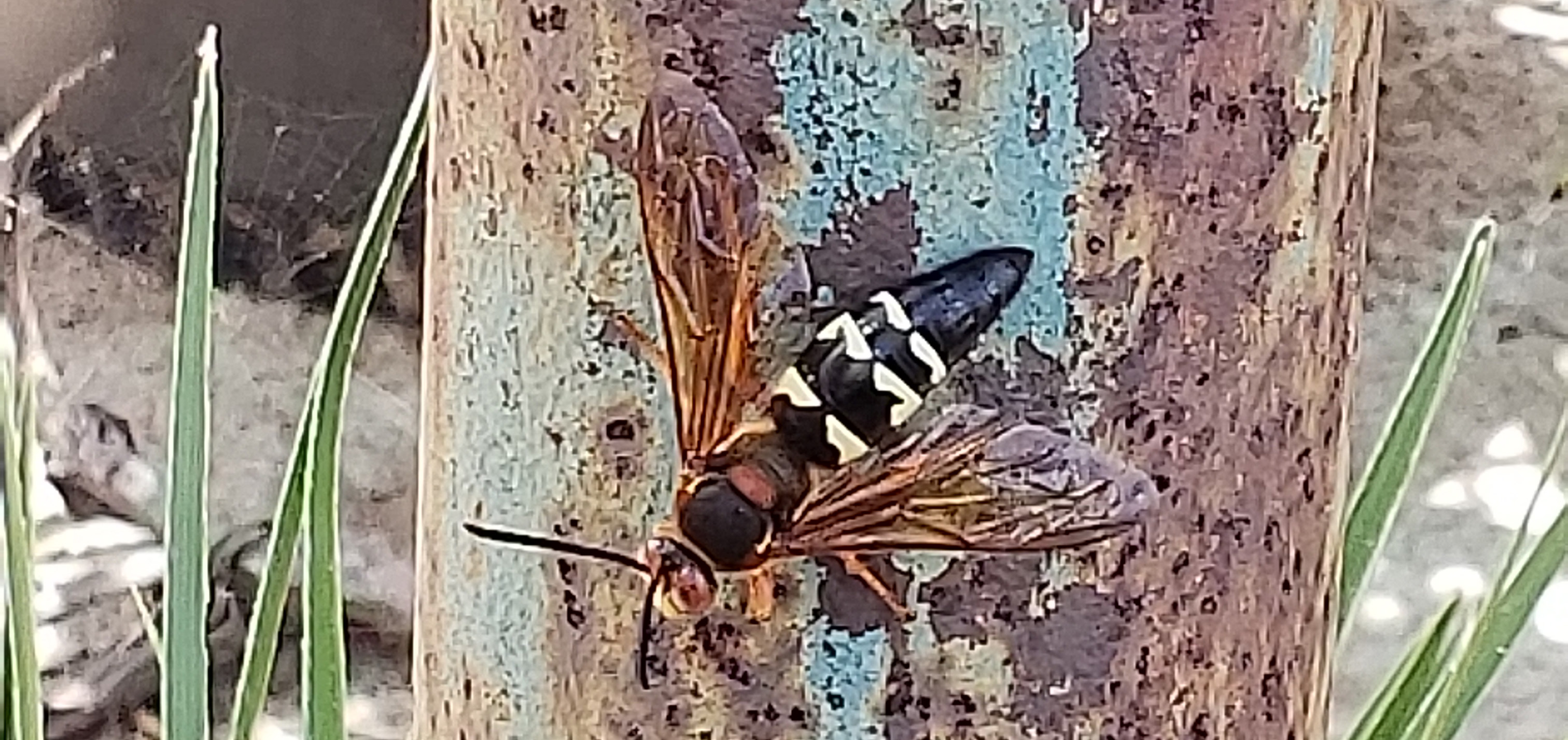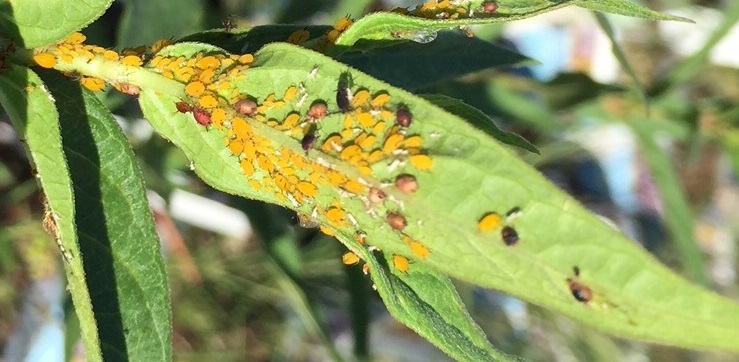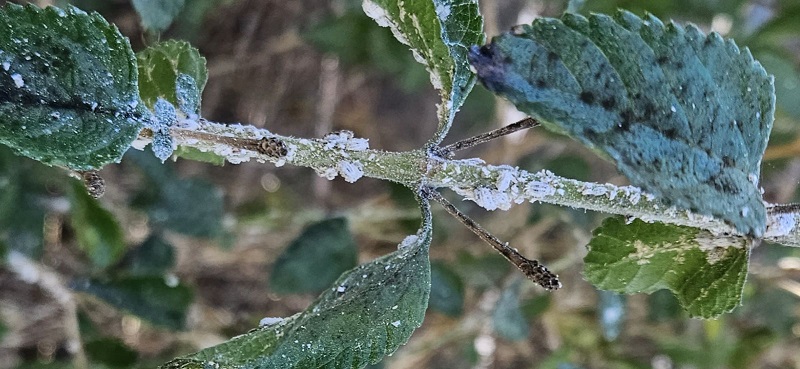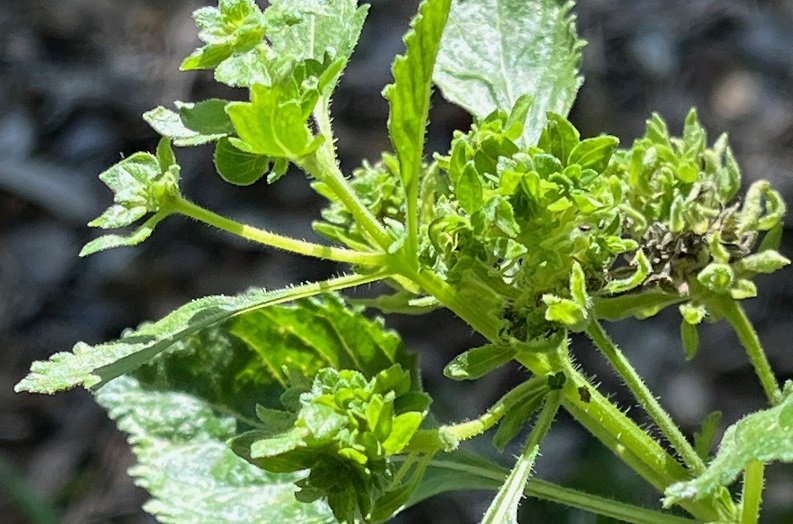Giant wasps sound like something out of a nightmare! Fear not though, the huge yellow and black insects loudly buzzing around are gentle giants that are either slow to sting, or unable to sting, depending on the gender. Although they are Texas-sized, these wasps are not limited to our state, and can be found from Canada to Mexico.
Cicada Killers, Sphecius speciosus (Drury), are large, solitary burrowing wasps. The name ‘solitary wasp’ may seem questionable as Cicada Killers can appear in large numbers, but refers to the fact that they do not congregate in communal nests. This means Cicada Killers do not group together and sting to defend their nests such as honey bees or yellow jackets do.
Generally speaking, Cicada Killers are docile, and are not quick to sting. Males can be territorial, and sometimes a lone male or even groups of males will aggressively fly at or around people and pets. While this can be frightening to people, it will be a relief to read that males lack a true stinger and are incapable of stinging. Much like a toothless dog, they are all bark and no bite. Females can sting, but are docile and invested in providing for their brood. Females will rarely sting unless heavily provoked. People and pets with allergies should still take care.
The lifecycle of these wasps is a short one. Adults emerge from underground nests in the summer. They feed, mate, and the females dig out nests. Females then seek out cicadas, and paralyze them with their sting. One or more paralyzed cicadas are deposited in each cell of the burrow before an egg is laid and the cell is then sealed. When the eggs hatch, the paralyzed cicadas provide food for the young as they develop.
Before reaching for the spray, remember that these largely harmless insects play important roles in the ecosystem. Both male and female adult Cicada Killers feed on nectar and aid in pollination. Female Cicada Killers help control populations of cicadas. Adults are short-lived; emerging in June and July, and completing their lifecycle and dying off by September or October. Hopefully knowing that these wasps are far more useful than they are harmful will make their short stay here one to celebrate (or at least tolerate) rather than fear!




